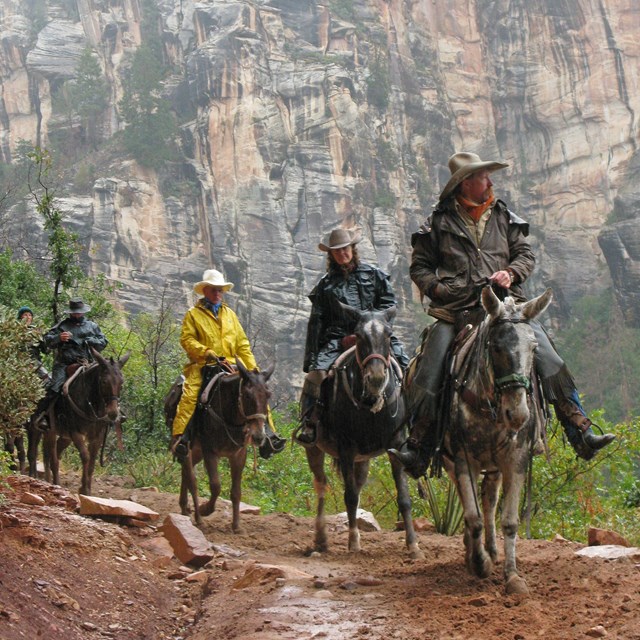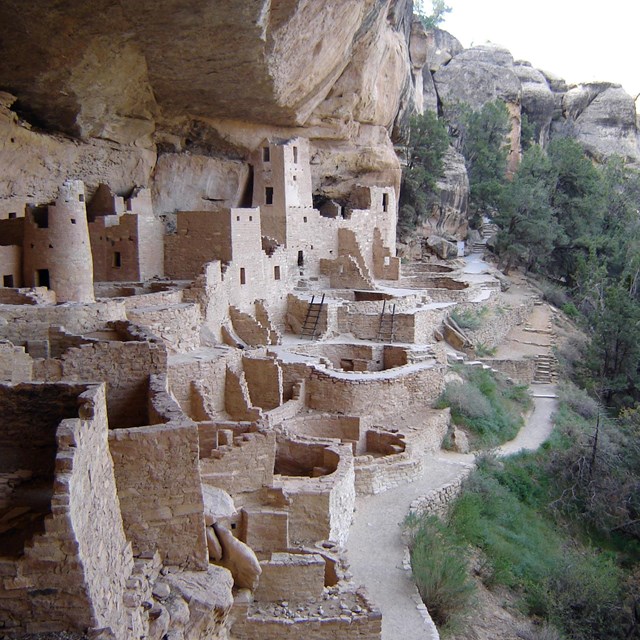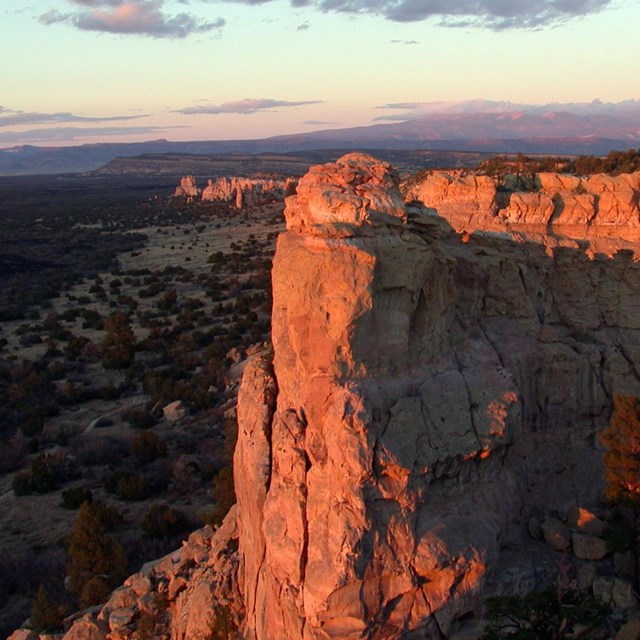Parks
The Southern Colorado Plateau Network comprises 19 parks renowned for their stunning cultural and natural resources.
Parks By State
-
 Arizona
ArizonaThe Southern Colorado Plateau Network works with nine parks in Arizona.
-
 Colorado & Utah
Colorado & UtahThe Southern Colorado Plateau Network works with four parks in Colorado and Utah.
-
 New Mexico
New MexicoThe Southern Colorado Plateau Network works with seven parks in New Mexico.
Partners
- NAU faculty and graduate students contribute their expertise and graduate work to natural resource inventory and monitoring projects across network parks.
- NAU students, graduate students and recent graduates receive valuable training and experience as field crew employees for Southern Colorado Plateau Network monitoring projects, working with network ecologists on data analysis projects, working with the network and network parks on science communication projects.
- Southern Colorado Plateau Network scientists work with NAU faculty on natural resource projects.
- The Southern Colorado Plateau Network and USGS teamed up to model soil water availability under projected climate conditions in 13 ecosystems in 9 network parks where long term vegetation monitoring is underway. A web article and 13 project briefs will soon be available for this project.
- USGS wildlife biologists conducted vertebrate inventories for many Southern Colorado Plateau Network parks.
- USGS ecologists completed several vegetation mapping projects and contributed to the development of upland, aquatic macroinvertebrate, and riparian monitoring protocols.
With overlapping goals and geographic focus, the CPCESU and the network link southern Colorado Plateau parks with the broader scientific community:
- Employing collaborative approaches to bringing sound science and scholarship to bear on resource management for NPS units.
- Working locally with individual parks, as well as on broader regional resource issues.
- Interacting with a diverse range of academic partners, including students and graduates interested in federal land management careers.
- Promoting connectivity within and among parks, between NPS and academic institutions and across the larger conservation landscape.
- Serves as a focal point for coordination of applied climate activities in the West – working with NOAA and other federal partners.
-
Acts as a repository of historical climate data and information.
- Conducts applied research on climate issues affecting the West.
Last updated: September 23, 2022
